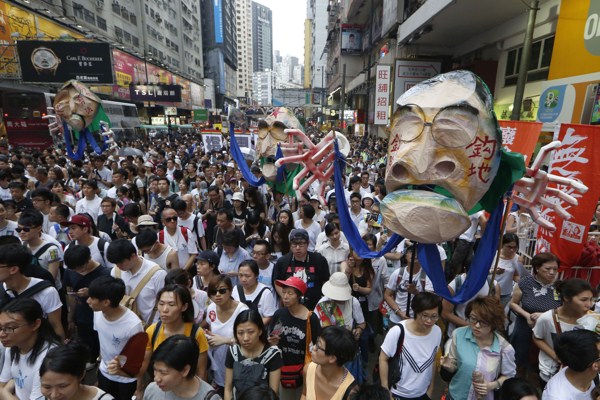Members of Hong Kong’s Occupy Central movement marched Sunday to demand universal suffrage for the election of the city’s chief executive. In an email interview, Robert Daly, director of the Kissinger Institute on China and the United States at the Wilson Center, discussed the movement and its quest for greater democracy in Hong Kong.
WPR: What are the Occupy Central movement's objectives, and who are its main supporters?
Robert Daly: Occupy Central’s goal is to ensure that the 2017 election of Hong Kong’s chief executive, which is supposed to feature “universal suffrage,” offers voters a meaningful choice. The founders’ original concern was that Beijing would mandate a nomination process that allowed Hong Kong to choose only among candidates pre-approved by the Chinese Communist Party (CCP). Beijing confirmed those fears in late August, when it revealed that candidates could only be nominated by a 1,200-person committee dominated by compliant Hong Kong elites.

